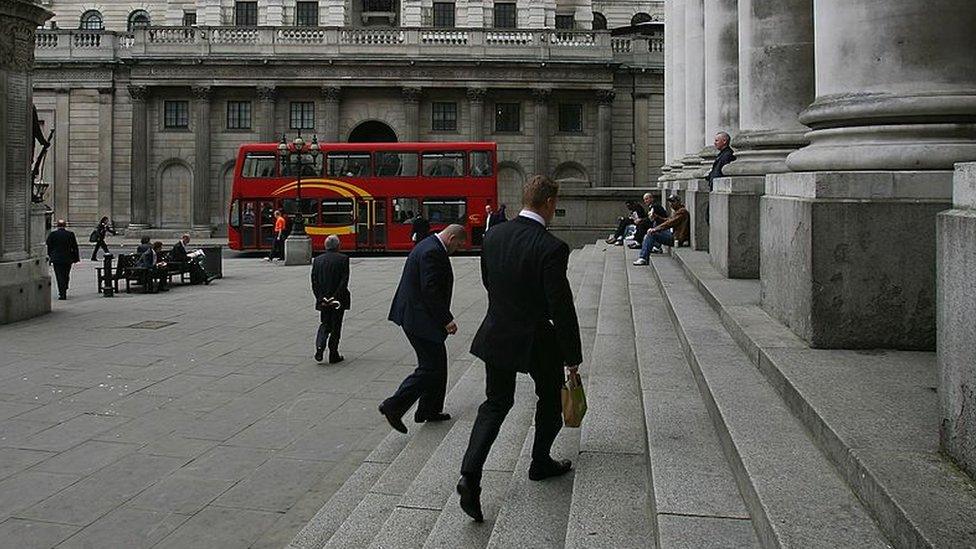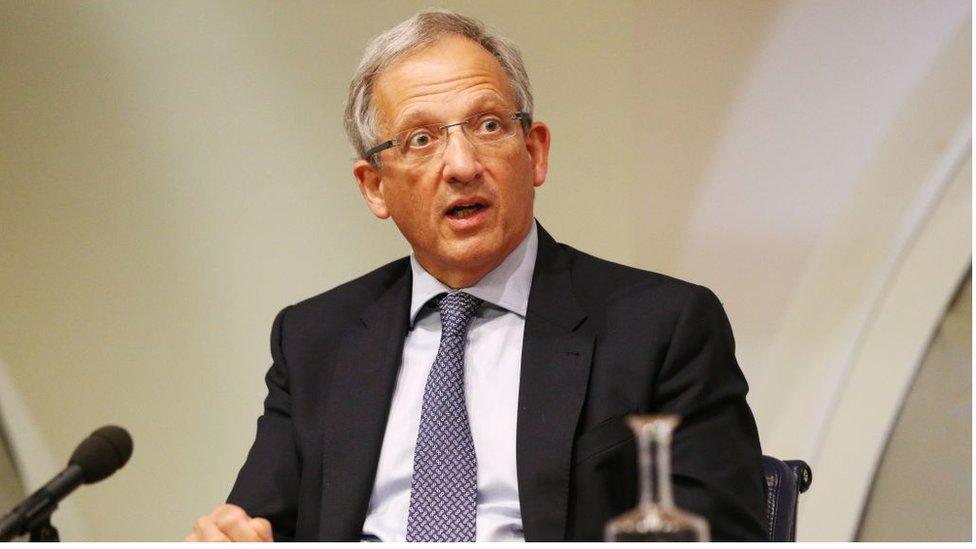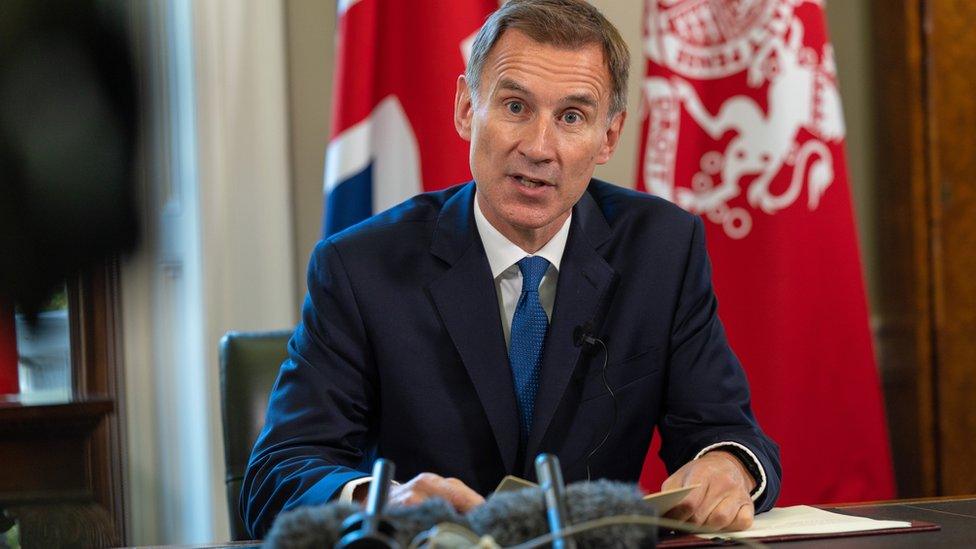Bank of England wasn't briefed on mini-budget
- Published

The government did not tell the Bank of England about its tax cut plans before the mini-budget, one of its deputy governors has said.
In the event, the mini-budget sparked market turmoil, with the Bank having to step in to stabilise pension funds.
The Bank could have advised the government on the possible market reaction, Sir Jon Cunliffe said.
The government was criticised for bypassing some independent scrutiny of its plans before making them public.
The mini-budget, which was put forward by former Chancellor Kwasi Kwarteng and Prime Minister Liz Truss, included huge tax cuts but it was unclear how they would be funded.
This led to a sharp drop in the pound against the dollar, and spooked investors about government debt, leading to the risk of some pension funds collapsing.
The Bank of England was forced to step in to buy government debt to stop a fire-sale by some pension funds of assets which could have led to their collapse.
Following the market turmoil, criticism by institutions including the IMF, and a huge drop in the polls for the Conservatives, Mr Kwarteng was sacked by his close political ally Liz Truss.

Sir Jon Cunliffe said the Bank could have advised the government.
At a meeting with MPs on Tuesday, Sir Jon said the Bank of England had not been consulted on the government plans before they were announced.
"We did not have a full briefing of the package the night before," he said. "Had they asked us what the market reaction would be, we would have interacted with them.
"But it is not our responsibility to give the government advice on fiscal policy. This would have been for the Treasury to advise on the market reaction."
However, he said ultimately the decision on how to proceed lay with ministers.
At Prime Minister's Questions in the House of Commons on Tuesday Labour accused Ms Truss of "crashing the economy".
The prime minister did not address the mini-budget, but said: "Interest rates are rising across the world and the economic conditions have worsened."
However, according to experts including the Bank of England, the mini-budget on 23 September also had a significant impact on the financial markets.
In a letter to MPs on the Treasury Committee on Monday, Sir Jon wrote: "There has been a particular increase in volatility in UK markets" and pointed out that: "The five largest daily moves in the 30-year inflation-linked gilt, in data that dates back to 2000, have all been since the 23 September", which was when the mini-budget was unveiled.
Gilts are a form of IOU which the government sells to borrow money to fund its spending plans.


A career Bank of England official like Jon Cunliffe doesn't overstate the situation.
But the two key answers he gave the Treasury committee are very serious.
He said that the Bank wasn't told about the unpublicised measures in the mini budget, and that had it anticipated a risk to financial stability it would have warned the Treasury.
Those are serious because it had every reason to anticipate instability.
The day before the mini-budget, the Bank had announced it would start to sell some of the £895bn of government bonds it had bought to try and keep the cost of borrowing down.
When more investors buy bonds than sell them, prices rise and the interest rate - known as the yield - drops.
In 2020/2021, the Bank's presence as a buyer in the market was crucial in enabling Rishi Sunak to borrow more than £300bn in to support the economy through Covid, without any offsetting tax rises or spending cuts.
The Treasury could borrow vast sums by issuing as many bonds as it liked to investors who didn't insist on higher interest rates to compensate for the risk of lending to a hugely-indebted government - because they could always sell the bonds straight away to the Bank.
By contrast, when the mini-budget was announced, there was no such buyer propping up bond prices, and therefore keeping down yields, because the Bank had announced it was now a seller.
That led to chaos.
But you only get to hear about potential unintended consequences of budget measures if you ask the people who know.

Related topics
- Published17 October 2022

- Published17 October 2022
